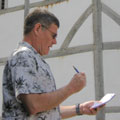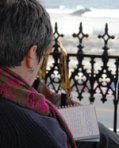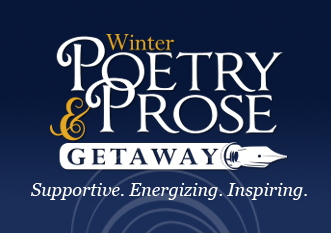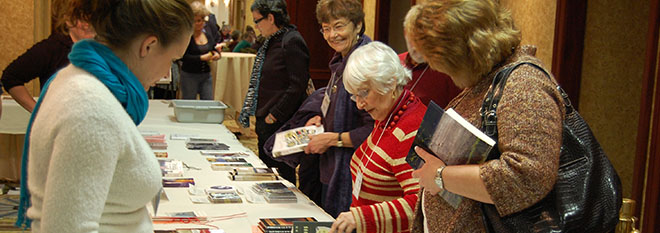 I have a journalist friend who does not read novels. “Why should I waste my time,” he told me, “reading about something that never happened. “I’ve heard this before. Over my 30 years teaching literature to high school students, I always had a few who mistakenly believed that fiction is “fake.” Having them read works like Of Mice and Men, The Sun Also Rises and Romeo and Juliet helped convert them, but there were those students that would not succumb to my charms. No matter what they read, they would not allow what Coleridge described as the “willing suspension of disbelief.” I don’t know. Maybe it’s a genetic disorder.
I have a journalist friend who does not read novels. “Why should I waste my time,” he told me, “reading about something that never happened. “I’ve heard this before. Over my 30 years teaching literature to high school students, I always had a few who mistakenly believed that fiction is “fake.” Having them read works like Of Mice and Men, The Sun Also Rises and Romeo and Juliet helped convert them, but there were those students that would not succumb to my charms. No matter what they read, they would not allow what Coleridge described as the “willing suspension of disbelief.” I don’t know. Maybe it’s a genetic disorder.
This has never been a problem for me. When I finish reading a good book, I feel both pleasure and loss. For a too brief period of time, the imagined world of the novel is the real world, but when it’s over, it is never truly gone.  I carry it with me and it inhabits the neighborhoods where characters from other books live out their lives, not in “quiet desperation,”but in brilliant exhilaration.
I carry it with me and it inhabits the neighborhoods where characters from other books live out their lives, not in “quiet desperation,”but in brilliant exhilaration.
Lately, I have been thinking of Edward Albee’s statement, “Fiction is fact, distorted into truth.” Although it is a work of the imagination, fiction must be “true,” not literally or factually, but emotionally—the kind of true that makes us believe in characters who do not exist.
It’s easy to read a great story, but it’s not easy to write one. It takes more than imagination and time; it requires learning the craft of writing. One way to become a better writer is to become a better reader. Another is to apprentice with writers who are willing to share. A third way is to join writers’ groups and attend workshops.
 Consider furthering your fiction by joining us at the Winter Poetry & Prose Getaway this January. The Getaway is known for its challenging and supportive workshops and for its community of writers who believe in this sharing. Who knows, after you publish your novel to great acclaim, my journalist friend might decide that he has to read it.
Consider furthering your fiction by joining us at the Winter Poetry & Prose Getaway this January. The Getaway is known for its challenging and supportive workshops and for its community of writers who believe in this sharing. Who knows, after you publish your novel to great acclaim, my journalist friend might decide that he has to read it.
Selected Fiction Workshops
Beginning Your Novel
You’ve already mastered “Procrastinating Your Novel.” Try this workshop to help you put the first words on the page, and go home with the momentum to write the last words too. Led by Michelle Cameron. Learn more
Writing and Publishing Your Fiction
In this workshop, you’ll create some new, baby stories–wobbly legs and all–and then learn about sending your all-grown-up stories out into the world. Led by Richard K. Weems. Learn more
Visions and Revisions: Creative Nonfiction & Novel
You don’t need to see apparitions to be a good writer, but you’ll never be a great writer until you “re-see” your work in a more imaginative way. As Robert Lowell said, “Revision is inspiration!” Led by Robbie Clipper. Learn more
See our full workshop listing for more details.





The Edward Albee quotation is wonderful! Thanks for sharing.
Thanks, Marc. Glad you like it!
Great post. I wonder if those who don’t read fiction also abstain from movies and tv shows on the same principal. Or is it just an excuse?
Thanks. That’s a great point about movies and tv–will have to try it out.
I have lost sales at book fairs when I tell people that The Other Sister is fiction, not memoir. They like it when I tell them that I got the idea for the book from a family story, but lose interest when they find out that the events and characters are completely made up. Go figure!
Pat
Pat, that reminds me of the phrase on so many TV shows, “Ripped from the headlines,” that wants to suggest that it has more validity than a story that is truly imaginative.